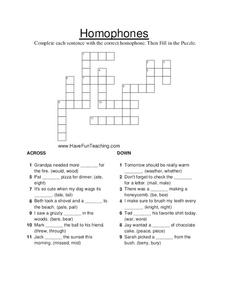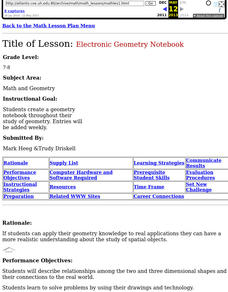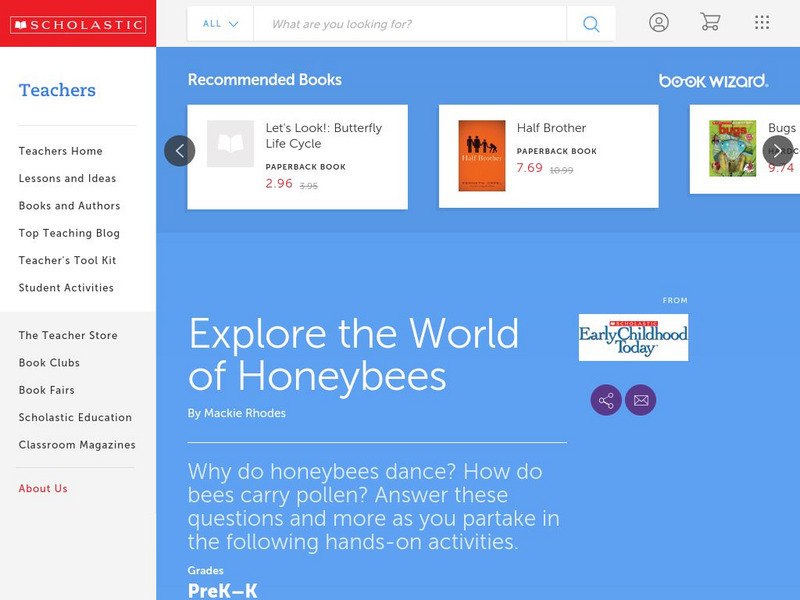Curated OER
Candlemaking
There might not be a butcher or baker, but you'll have a class full of candlestick makers after a hands-on lesson about candles make from beeswax. After a brief history of where beeswax comes from, young artisans craft their own...
Curated OER
Biology Tessellations
Learners review three types of polygons that are triangles, squares, and hexagons. They use a computer program to draw various types of tessellations. The students use the drawing of a honeybee as inspiration.
Green Hope High School
Close Readings from The Tempest + New World Readings
What was Shakespeare's intent? That is the question at the heart of a summer assignment designed for AP English Literature. Class members focus on five scenes from The Tempest and compare the interactions of Prospero, Caliban,...
Curated OER
Insects Are Helpful!
Students see that insects do lots good and are very valuable to humans and nature. This is part of an ongoing effort to dispel fears of insects. They rotate through a series of centers that have examples of how insects contribute to our...
Curated OER
Homophones Crossword Puzzle
In this crossword puzzle learning exercise, students solve a crossword puzzle by choosing the correct homophone. For example, "Mark threw/through the ball to his friend."
Curated OER
Electronic Geometry Notebook
Students examine the relationship between two and three dimensional shapes. They use their drawings to solve problems. They create a notebook of the formulas and how they relate to the real world.
Curated OER
Keeping in Shape
Third graders describe patterns in terms of reflection and rotation symmetry, and translations. They design and make a pattern which involves translation, reflection, or rotation. They demonstrate why a given tessellation covers the...
Scholastic
Scholastic Instructor: Explore the World of Honeybees
Discover more about bees through this educational resource. This resource features math and science activities, experiments, fun facts, and more.
Illustrative Mathematics
Illustrative Mathematics: G Mg Hexagonal Pattern of Beehives
Beehives are made of walls, each of the same size, enclosing small hexagonal cells where honey and pollen are stored and bees are raised. This problem examines some of the mathematical advantages of the hexagonal tiling in a beehive....
University of Cambridge
University of Cambridge: Nrich: Buzzy Bee Problem
See if you can find the pattern in Buzzy Bee's honeycomb. The solution is available right at this one page website.











